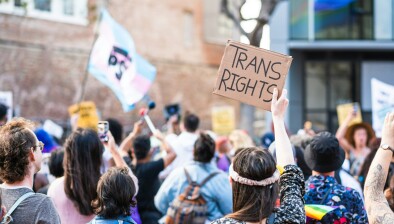Eliminating racial discrimination in Ireland

The Irish Human Rights and Equality Commission reflects on racism in Ireland on the occasion of the twentieth anniversary of the Race Equality Directive coming into force.
Today marks the twentieth anniversary of the Race Equality Directive, under which EU member states, including Ireland, committed to implementing a legal framework to eliminate racial and ethnic discrimination in policy and practice.
In 2020, however, young people in Ireland, people of different ethnicities and backgrounds, including Travellers and Roma, people of African descent, migrants and refugees, continue to suffer shocking examples of racism and racial discrimination.
The Black Lives Matter movement has shone an uncomfortable light onto this unspoken reality in Ireland. While we have become a more diverse society, we have not always been, and still struggle to be, tolerant of difference.
Ireland’s treatment of Travellers, in particular, has been a dark shadow on our democracy for generations. Travellers have been - and continue to be - subjected to endemic racism, at street level and from the organs of the State. If the invidious impact of racism on the individual and on a community could ever be doubted, one only has to consider the effects of discrimination on generations of Irish travellers, in their political representation, employment, education, health and life expectancy.
What is important now is that we face racism and racial discrimination in our own communities, and in our own society. That we do not seek to downplay it or ignore it. And that we respond with the proper actions necessary to address structural racism in our society.
The Irish Human Rights and Equality Commission reported in December 2019 in Geneva on Ireland’s obligations under the UN Convention on the Elimination of Racial Discrimination. The Commission has, following consultation and input from around the country, outlined over 150 individual recommendations we consider necessary to show leadership by the State itself in tackling racism and building a more inclusive society.
Leadership starts with taking positive steps to change policies, practices and behaviour that discriminate in favour of some over others. The Commission has made recommendations for policy change across our health, social care, employment, justice, education, housing, political and immigration systems.
Since 2014, through the Public Sector Equality and Human Rights Duty, the law obliges public bodies to have regard to the need to eliminate racial discrimination; promote equality of opportunity and treatment; and protect the human rights of both staff and those who use their services. This positive legal Duty also requires that, in planning their work, public bodies assess the equality and human rights issues relevant to their function and purpose; take actions to address these issues; and report on progress made.
Eliminating racial discrimination; promoting equality of opportunity and treatment for people of different ethnic backgrounds; and protecting the human rights of people who use, and who work in, our public services, should be at the core of how the State carries out its business.
State leadership also requires greater urgency in addressing longstanding inadequacies in its approach to the serious problem of hate crime and hate speech in Ireland, by ensuring an effective response in the criminal law. The State should also develop a comprehensive regulatory framework to combat hate speech online with compliance enforced by an independent statutory body, backed up by effective and proportionate sanctions.
The current pandemic has tested the bonds of community and solidarity in Ireland, and has shown that they are strong. We can harness this pride in who we are as a society, to challenge voices who try to sow division and grow hatred.
Racism is not the problem of those who are trolled online with images and invective. It is not the problem of those abused on the street in the crudest terms while others watch on passively. It is our problem, collectively and individually, to address, challenge and stamp out.
We cannot continue to view racism in Ireland as a patchwork of individual isolated incidents of bad behaviour. Rather, we need to recognise racism as a structural problem across our whole society which results, in many instances, in actual racial discrimination in employment, and the provision of services,
The Irish Human Rights and Equality Commission will continue to work to fulfil our statutory mandate in the area of promoting intercultural understanding, and our strategic priority of combatting racism.








